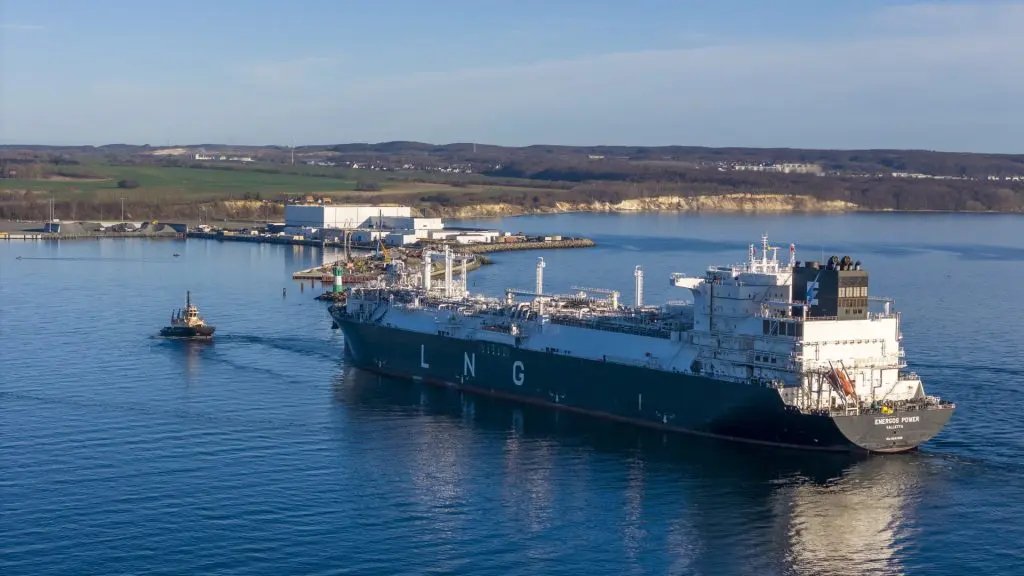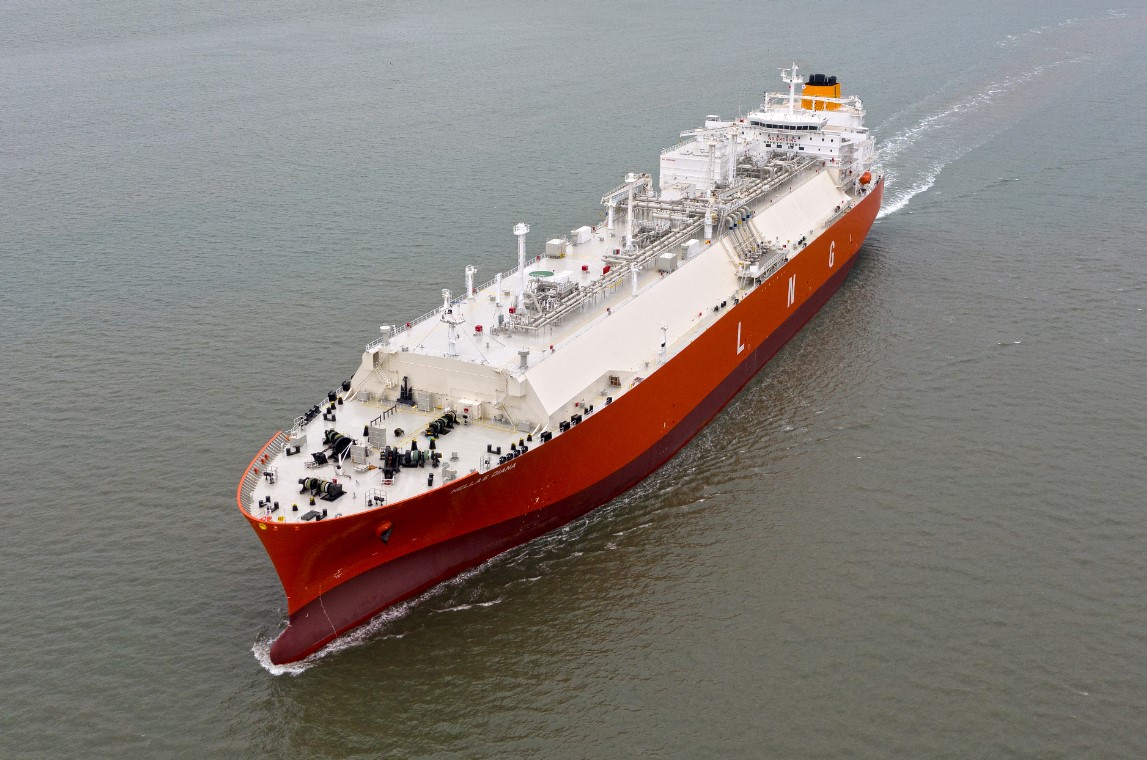This story requires a subscription
This includes a single user license.
The 2021-built 174,000-cbm LNG carrier, Hellas Diana, owned by Latsco and chartered by Trafigura, was on Wednesday located at the Mukran FSRU terminal, which consists of two FSRUs, according to its AIS data provided by VesselsValue.
Hellas Diana is loaded with a cargo from the Freeport LNG terminal in Texas, the data shows.
“Today’s delivery took place as part of the ongoing commissioning phase at the Energie-Terminal Deutsche Ostsee in the industrial port of Mukran,” a spokesman for Deutsche ReGas told LNG Prime.
Two FSRUs
In July, Deutsche ReGas welcomed the second FSRU at its LNG import terminal in Mukran.
The 2009-built 145,000-cbm, FSRU Neptune, arrived on July 3 at the terminal.
The unit, which is 50 percent owned by Hoegh LNG and sub-chartered by Deutsche ReGas from TotalEnergies, left in May Germany’s industrial port of Lubmin, where it served the Lubmin terminal.
Deutsche ReGas officially launched its Lubmin FSRU-based LNG import terminal, first private LNG terminal in Germany, in January last year.
After leaving Lumbin, Neptune was located for about a month at Fayard, in Denmark’s Odense port, to complete preparational work prior to its deployment at the Mukran LNG terminal on the island of Rügen.

Prior to the arrival of Neptune, the Mukran terminal featured the 2021-built 174,000-cbm, Energos Power, owned by US-based Energos Infrastructure.
In June last year, Deutsche ReGas signed a deal with the German government to sub-charter the FSRU delivered in 2021 by Hudong-Zhonghua. Deutsche ReGas took over the charter of Energos Power in October last year.
Deutsche ReGas received the first LNG tanker at the Mukran facility in March this year as part of the commissioning phase.
Neptune and Energos Power are located side-by-side at the berth 12 in the Mukran port.
Commercial launch and capacity auction
The private LNG firm led by Ingo Wagner and Stephan Knabe said in June that it expected to launch full operations at the Mukran LNG facility in July.
Deutsche ReGas said on July 4 that “the terminal is still in commissioning subject to the permission.”
“The Energie-Terminal Deutsche Ostsee received its permit on April 10, 2024. As confirmed by the authorities in early August, Deutsche ReGas meets the requirements for regular operation of the Deutsche Ostsee energy terminal,” the spokesman said on Wednesday.
“However, regular operation was ultimately not announced yet,” he said.
The spokesman also commented on the recent capacity auction.
In June, Deutsche ReGas invited market participants to express an interest in capacity at the Mukran FSRU-based facility from 2024 to 2027.
“Due to technical difficulties on the part of the PRISMA marketing platform, the auctions could not take place,” he said.
He said Deutsche ReGas plans to reschedule the auction in the second half of 2024.
“Irrespective of these technical restrictions, some short-term capacities were successfully marketed,” the spokesman said.
Worth mentioning here, France’s TotalEnergies and Switzerland-based MET previously booked capacity at the Lumbin FSRU terminal.
MET booked 1 bcm per year and TotalEnergies took 2.6 bcm per year of the regasification capacity for a total of 3.6 bcm.
Largest LNG import capacity in Germany
Once in full operation, the Mukran terminal will offer an annual regasification capacity of up to 13.5 billion cubic meters of natural gas and will be able to cover up to 15 percent of Germany’s total natural gas demand, Deutsche ReGas said.
The company said the privately financed terminal has the largest capacity of all German LNG terminals and plays a “central role” in supplying eastern Germany, industrial consumers in south-western Germany, and neighboring Eastern European countries.
Besides the FSRUs, the Mukran terminal includes the 50-kilometer-long pipeline Ostsee Anbindungsleitung (OAL).
Germany’s Gascade built this pipeline which connects the LNG terminal in the port of Mukran with the German gas transmission network in Lubmin.
Earlier this year, Belgium’s Fluxys bought a 25 percent stake in this pipeline.
The terminal is connected to the pipeline via the entry point named the Baltic Energy Gate
(BEG).

